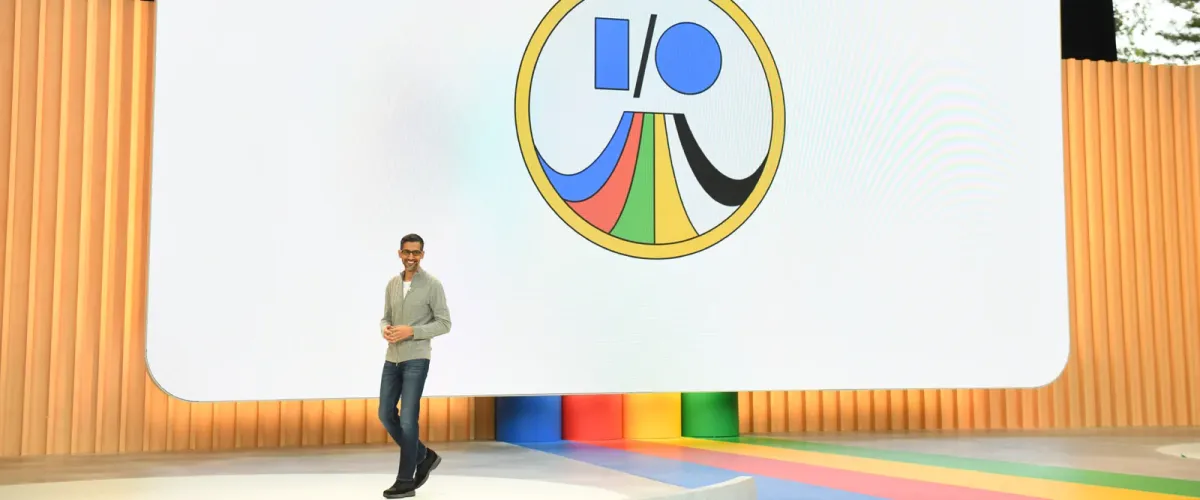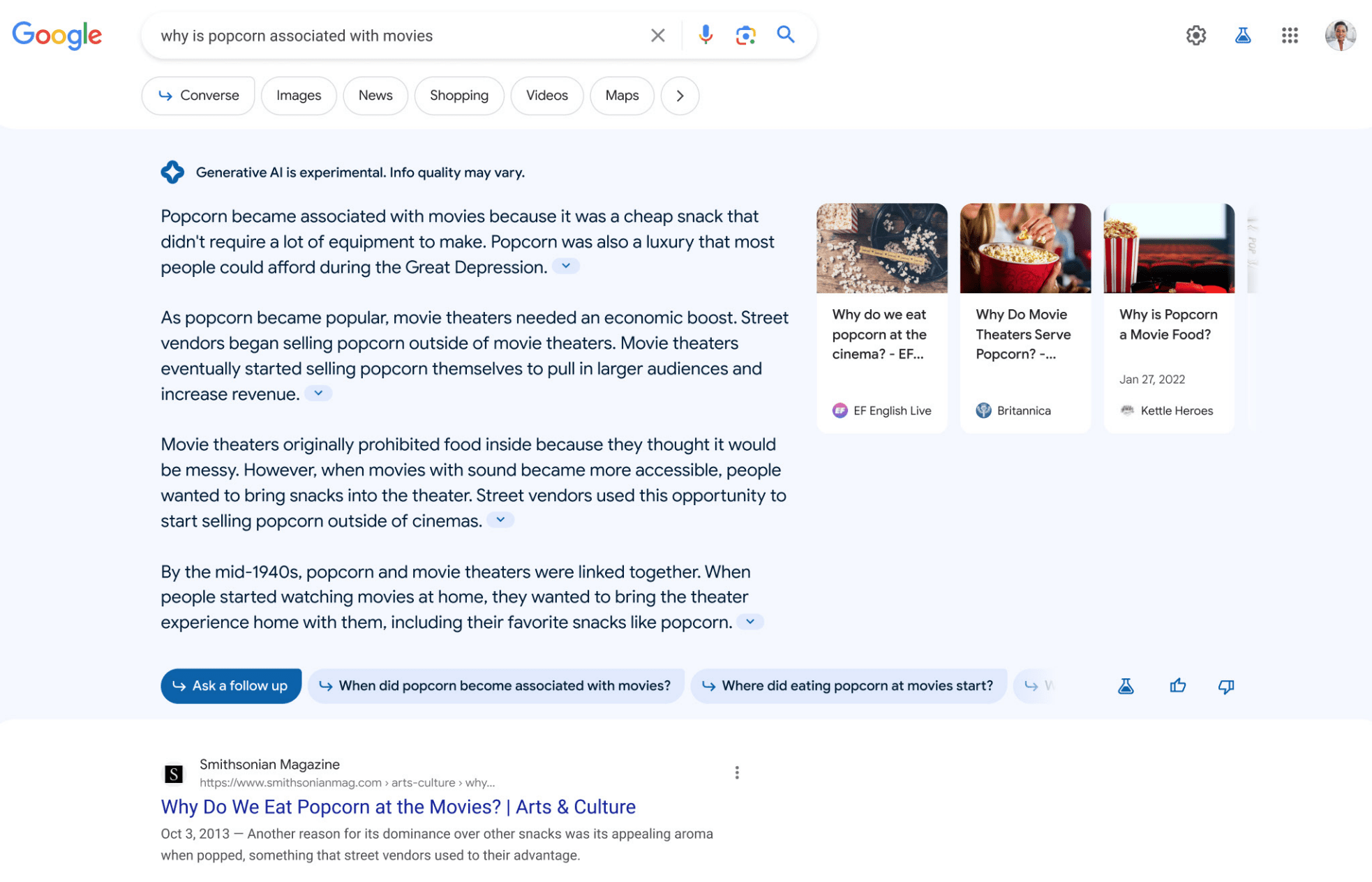"Let Google do the googling for you..."

Following the latest Google I/O conference, where the search giant presents its new tools and innovations to the public, the question that was front and center was, "How would Google deal with AI crippling its ad business model?"
As I was discussing back in January 2023:
The problem Google has with ChatGPT and the next derivatives of this technology is not the technology itself but the business model it would entail. You see, Google is not in the business of giving you the best answer possible to a query; it's in the business of making you click on an ad. If you ask for the best TV under €1,000, Google has to ensure that you will see ad placements paid by its customers at the top of the list.
We now have an answer.
Google plans to fully replace its previous search format (you input words, and get links sorted for relevance, with the top links being paid advertising) by the end of this year with what they call Search Generative Experience. What Google wants to do is–as they pitch it themselves–let Google do the Googling for you. This means that Google intends to use AI to step 1) Search the most relevant links to your query as usual but then add step 2) Format with AI a page that will use the top links content to give you a fully rendered result.

What will happen now is that while in the past we relied on Google's search engine bias to find relevant links to answer a query, now we will also rely on Google's AI to interpret the results and give us an answer. In theory, we can still find the links to format the answer and use our judgment, but who will do that anymore? And since their ad business model still needs to prevail, this answer will be fully colored by the need to push sponsors as trustworthy and pertinent sources of information.
Want to know how to invest? If they paid top ad-words dollars, Google's perfectly reasonable answer might push shady investment websites. Which for Google is OK since, by Section 230, they still won't have any responsibility for doing so).
With this shift in the way Google addresses search, we'll lose a bit more critical thinking and understanding of how the web works and we will certainly become even more dependent on Google's funnel, getting narrower and narrower as businesses.
That being said, Google did answer the most critical question they were facing on "code red" mode these last months with ChatGPT: how will they monetize the web if they can only provide one fully formatted answer and risk being seen as entirely biased by companies paying the most to be featured as center-stage to this answer? Wouldn't they lose any semblance of credibility and trust?
And the answer is they don't care.
[ EDIT, May 17 ]
Fun fact: Google search will soon be in "AI mode" by default, and you will have to toggle manually on the old search mode to see the list of links. So yes, they are committed to the new model.





